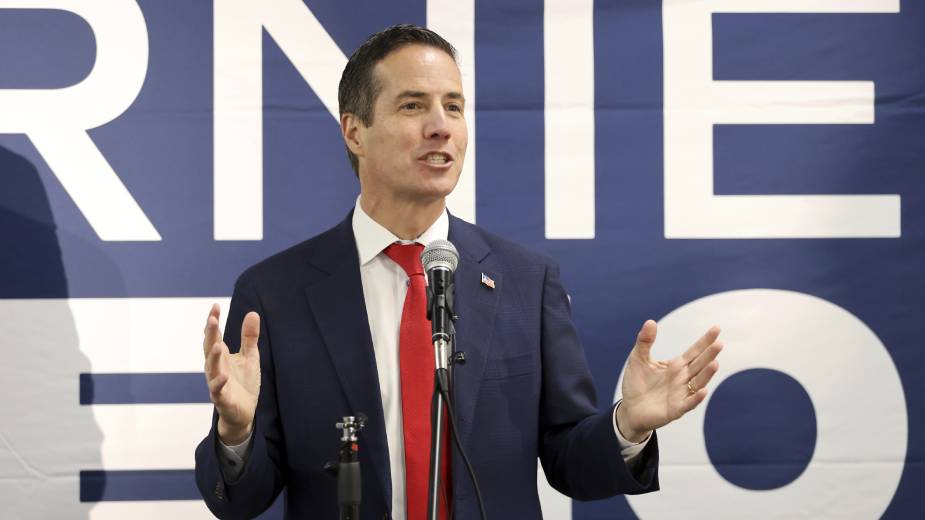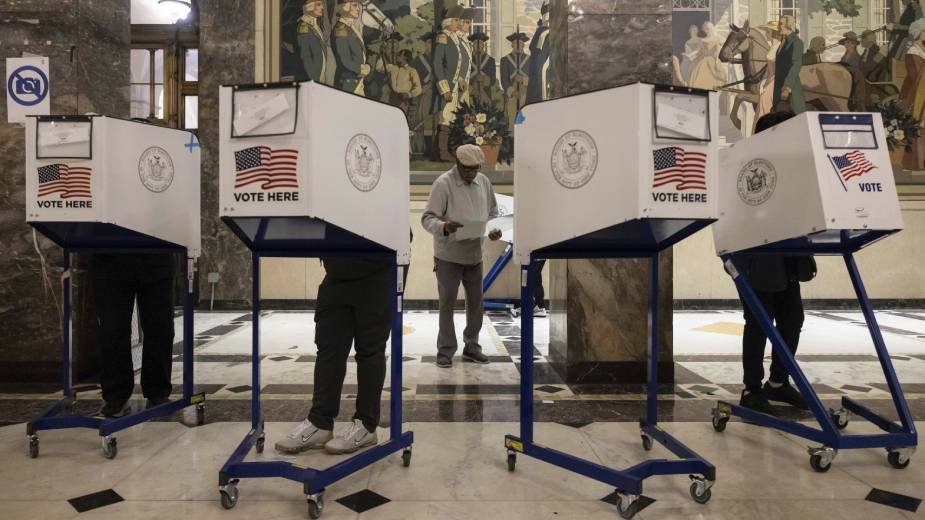After Missing Debate Cut, Defiant Ryan Stays in Presidential Race
YOUNGSTOWN, Ohio – U.S. Rep. Tim Ryan has no plans to abandon his presidential campaign anytime soon, despite failing to qualify for the third debate next month.
The Democratic National Committee and ABC, which will broadcast the debate, announced Thursday that 10 candidates seeking the Democratic Party’s nomination for president qualified for the Sept. 12 debate in Houston.
The lineup will include former Vice President and Democratic frontrunner Joe Biden, U.S. Sen. Elizabeth Warren of Massachusetts and U.S. Sen. Bernie Sanders of Vermont, an independent seeking the Democratic nod.
Ryan, D-13 Ohio, was among several candidates who didn’t make the cut.
“It’s way too early to start excluding people,” Ryan, D-13 Ohio, said in a phone interview Thursday afternoon. “To start saying now that the DNC is going to determine who’s in and who isn’t is not right, but it is what it is.”
To qualify for the debate, candidates must have achieved 2% or more support in four qualifying polls and have received donations from a minimum of 130,000 unique donors and 400 unique donors per state in at least 20 states.
In a Quinnipiac University poll released Wednesday Ryan got less than 1%.
The day before the DNC-ABC announcement, U.S. Sen. Kirsten Gillibrand of New York, who has also struggled in poling and fundraising, announced she was ending her bid.
Responding to the exclusion, Ryan said his campaign would no longer spend $50 to $70 to get $1 donations that would add to his number of individual donors needed to meet the DNC’s guidelines.
“It’s a stupid game. It’s a sideshow,” he said. “All these candidates who are talking about how much they hate Facebook are giving Facebook $150,000 [or] $200,000 a week. I’m not playing that game anymore.”
His comments echoed comments in a statement issued earlier by senior campaign adviser Michael Morley.
“After participating in two DNC debates with the opportunity to speak for roughly 19 minutes, our campaign realizes that there are more constructive ways for us to connect to voters than a mad dash to spend $50 to get a $1 contribution,” Morley said. “While these national platforms are helpful, our campaign is focused on the old-school tactics like taking our message directly to the voters and caucus-goers in the communities of the early states.”
Ryan’s approach is paying off with “significant endorsements” in New Hampshire and South Carolina, Morley said. This week, the campaign announced six former Biden campaign advisers in South Carolina had switched their support from the former vice president.
Ryan also said he is getting standing ovations at venues where he speaks, but because of his lack of name recognition, that isn’t translating into higher poll numbers yet. Voters are looking for “a moderate, sensible person” who can beat President Donald Trump and who understands issues like the ones he campaigns on, including the new economy, social-emotional learning and building electric vehicles, he said.
“I’m more excited today than I was on April 4,” he said, referring to the day he declared his candidacy. “That may not make much sense to a lot of people but I’m feeling it on the ground and I’m excited about who’s helping us now.”
He also expects to roll out more endorsements in the coming days.
“We have growing enthusiasm for Tim’s platform of being a strong advocate for the working class and bridging the opportunity and racial divides in our country,” Morley said. “We will continue to build momentum by having these real discussions with the American people directly.”
Ryan said his approach going forward would mirror that of his 2000 and 2002 campaigns for state senate and Congress, respectively.
“I’m going back to what I know how to do and what the people want, and that’s a grassroots candidate that’s going to get their support,” Ryan said.
“People are starting to see what’s happening in North Carolina and New Hampshire,” he continued. “They’re calling and they want to meet me and they want to see what’s going on because they’re not satisfied with what the field looks like right now.”
Ryan was not sure if he would qualify for the October Democratic debate and reiterated he would not “spend a lot of time and energy trying to chase those low-dollar donors.”
If his numbers start improving in early primary states, “then it’s going to be a very uncomfortable thing for the DNC to be taking people out that are doing well,” he said.
He also said he has been in touch with “very significant people who can raise money” and are interested in helping now as summer ends and people are paying more attention to the campaign.
“We’ll see what happens,” he said.
A DNC spokesperson did not respond to a request for comment Thursday.
Copyright 2024 The Business Journal, Youngstown, Ohio.



